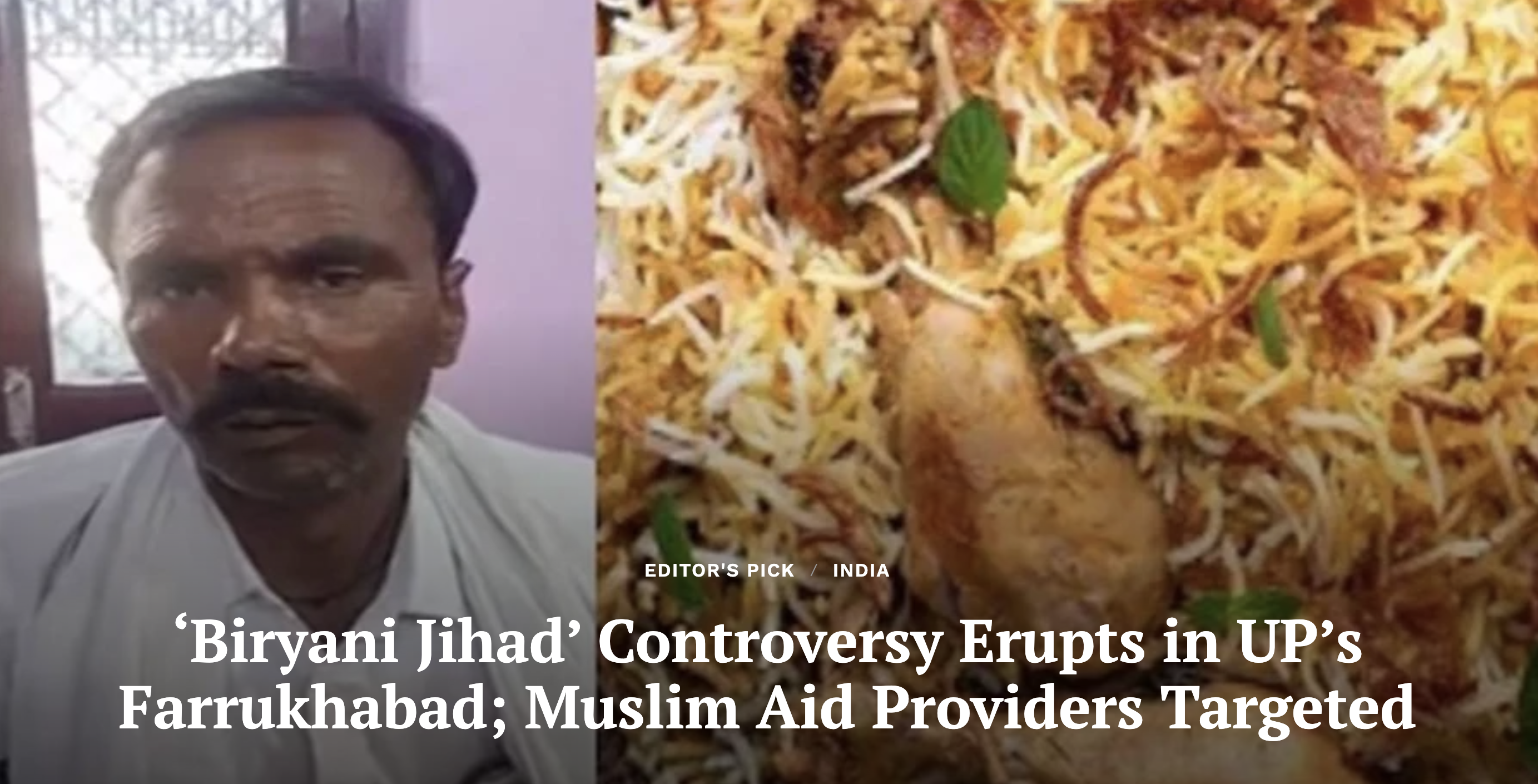
By Team Clarion
FARRUKHABAD – A controversy has unfolded in Farrukhabad district of Uttar Pradesh, placing Muslim village head Mohammad Shami and his family at the centre of a heated debate. The whole episode is being dubbed as “biryani jihad” by some Hindutva elements on the lines of ‘love jihad’, ‘spit jihad’ and other kinds of systematic campaigns to malign the Muslim community.
Shami, his sons, Mohammad Saif Ali and Talib Ali, along with four others, are being accused of distributing non-vegetarian biryani during Janmashtami, an act some claim was intended to corrupt local religious practices. Two of the accused have been arrested, and authorities are collecting evidence as the case unfolds.
The complaint was filed by Sunil, a resident of Raipur Chinhat Pur, who alleged that Shami and his family deliberately served non-vegetarian food to villagers on a sacred Hindu festival. Sunil told police that the act was “an attempt to mislead people and interfere with their religious beliefs.”
However, Shami Mohammad has strongly denied all allegations. “We did not distribute any biryani on Janmashtami,” Shami stated. “Our boat was providing food aid to flood-affected villagers across more than two dozen villages in the Kampil police station area. People from Rampur came and collected food from us. This complaint is purely a result of political rivalry against me and my family.”
The Kampil region of Farrukhabad has been severely affected by flooding this year, leaving thousands of villagers in urgent need of assistance. Shami Mohammad, in his role as village head, has been coordinating food distribution and relief efforts with local volunteers and social workers.
On the day of the incident, Shami’s boat was delivering essential food supplies to flood-affected households. Witnesses from nearby villages reported that the aid consisted mainly of vegetarian meals, and that the focus was on helping those struggling in difficult conditions rather than influencing religious practices.
“Shami Sahab has always helped the villagers in times of need,” said Razia Begum, a resident of a nearby village. “During the floods, he and his team worked day and night to ensure everyone received food. It is painful to see him being falsely accused while he was helping people.”
This story was originally published in clarionindia.net. Read the full story here.

